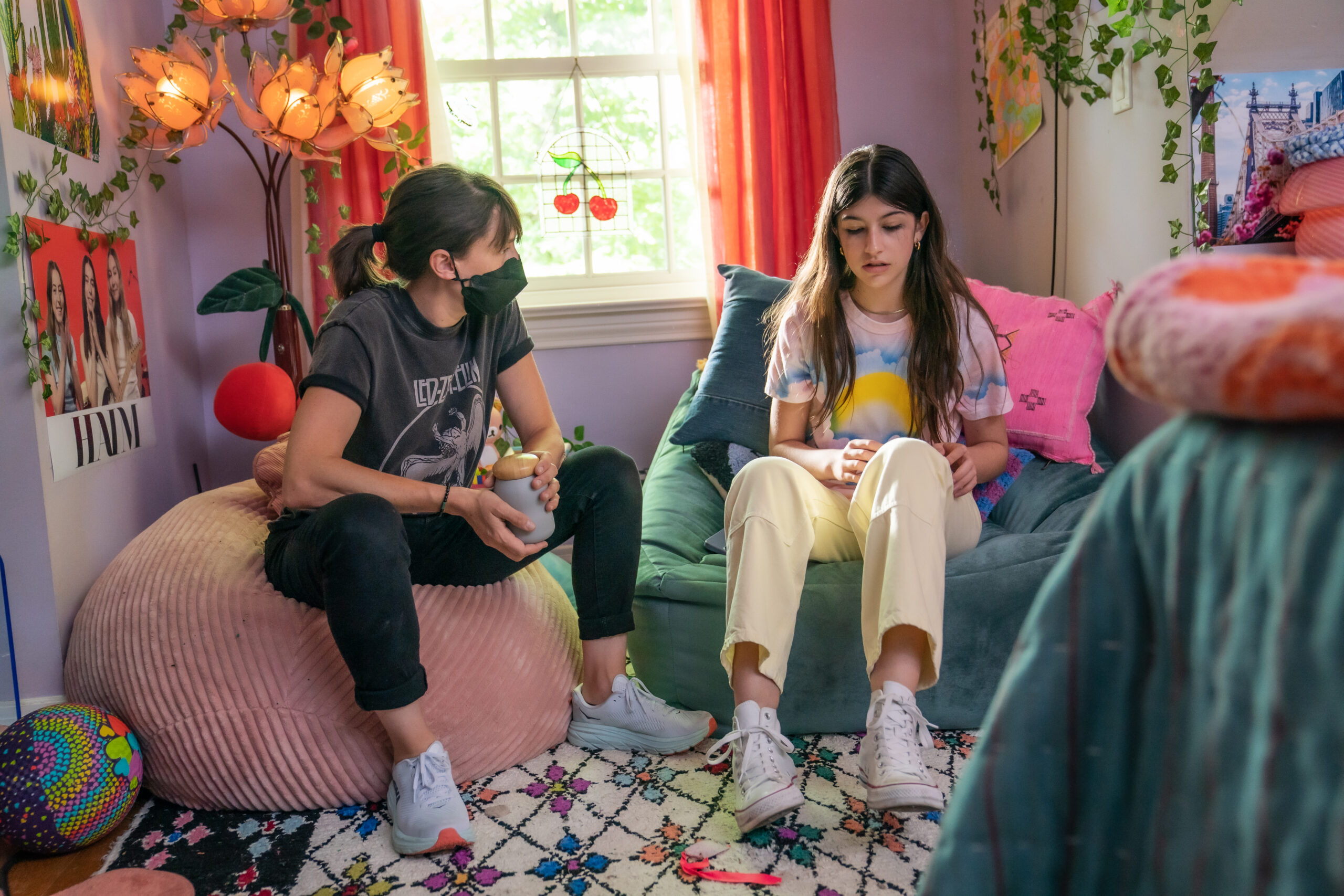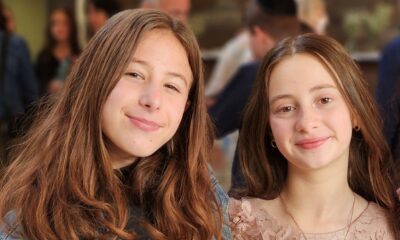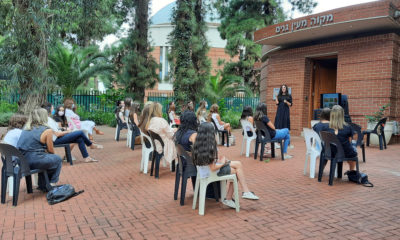
Featured Item

You don’t have to be Jewish to enjoy this movie
“A Batmitzvah movie? Finally!” Those were the words of Sammi Cohen, the director of Netflix’s You Are So Not Invited to My Bat Mitzvah, upon hearing about the film. Cohen chatted to the SA Jewish Report about growing up Jewish, depicting this world onscreen, and working with Adam Sandler and his family.
“I was excited there was a movie being made about this big, crazy world that I grew up in,” says Cohen. “Growing up as a Jew in Los Angeles, I went to more Barmitzvahs, Batmitzvahs, and B’naimitzvahs than I can count. And if that wasn’t enough, in high school, my best friend and I started crashing Barmitzvahs and Batmitzvahs every weekend.”
Though it’s quintessentially Jewish, for Cohen, the film felt personal and universal all at once. “What’s fun about being Jewish is you get together with people you love, you eat, you dance, you sing. And while that feels very Jewish to me, it’s also something that’s so universal. Yet, I love that this is a Batmitzvah movie that celebrates Judaism. It’s the kind of movie I wish I had growing up.”
For the girls in the film, throwing an epic party is a definite focus, but the film also depicts the Batmitzvah preparation, service, and mitzvah project that they’re required to complete. “We wanted to approach the film as holistically as possible so that we could go deeper into this world, paint a bigger picture, and ultimately allow people to have a better understanding of what it all means,” says the director.
Yet, Cohen is the first to acknowledge that the film doesn’t represent everyone’s Jewish experience. “I’m Reform, and grew up celebrating the high holidays, going to temple, and when I was old enough, I went on Birthright. I’m a queer, non-binary, very progressive Jew, and the Jewish community I belong to is also progressive.”
As a result of Cohen’s familiarity with this kind of community, the film is set in this world, but it aims to open the door to different kinds of Jewish representation. “I’m hoping it’s the start of many more Jewish stories being told on screen,” Cohen says.
Based on the book by Fiona Rosenbloom, You Are So Not Invited to My Bat Mitzvah follows besties Stacy (Sunny Sandler) and Lydia (Samantha Lorraine) who have been planning their Batmitzvahs for what feels like forever. Yet, with their big days looming, a massive fallout threatens to derail both their big days.
Not only does the movie tackle themes of female friendship and coming of age in a Jewish context, it’s also making headlines for starring Adam Sandler’s entire family. The actor, who also produced the film, plays Danny Friedman, father to Stacy, and Ronnie (Sadie Sandler), both his real-life daughters. His wife, Jackie, plays Lydia’s mother, Gabi.
“The Sandlers made me part of the family,” says Cohen, who has defended Sandler for casting his daughters amid the resulting ‘nepo-babies’ media debate. “It was this really beautiful dynamic in which everyone had space to do their own thing but always had support when they needed it. And there’s natural chemistry you get with the Sandlers that makes everything feel real and slice-of-life.”
The fact that the film mirrored real life also provided a dose of authenticity, Cohen says. In addition to Sandler playing dad to his daughters, just before filming, Sunny had her real-life Batmitzvah. “It felt like we were making a movie and memorialising these very real moments in life.
“One of my favourite scenes in the film is a sweet, candid moment that Danny has in the car with Stacy,” says Cohen. “He does this bit where he fake spills coffee on her to make her laugh. On screen, its magic. It speaks to this idea that sometimes kids are sad, and you feel hopeless as a parent. Stacy is experiencing this whole inner world of turmoil and Danny feels far away, so he makes her laugh. As much as that scene is Danny and Stacy, it’s also Adam and Sunny. It’s hard to put into words how special that feels.”
The movie’s focus on the love of friends and family, as opposed to romantic love, is also one of its strengths, Cohen says. “I love that we get to see the bond between Stacy and Ronnie as sisters, the bond between Stacy and Lydia as best friends, and the bond between Stacy and her dad. Your first crush is unforgettable, but all of these other relationships are really the foundation that you build a life on.”
The fact that people outside the Jewish faith are connecting with the film is a source of pride for Cohen. “It’s bringing people together on a human level. We celebrate being Jewish, but I think the film resonates with broader audiences because the story is driven by Stacy’s emotional journey of self-discovery. She’s Jewish, but she’s also a human being learning how to exist in the world. Part of this is rooted in Judaism and its teachings, but Stacy is a real kid and real kids contain multitudes. They’re complicated and multifaceted, just like everyone else.”
Cohen, who also recently directed a romantic comedy, Crush, set at high school, has always been interested in adolescent stories and the coming-of-age genre. “Kids are like raw nerves. As adults, we form these coping mechanisms that keep our emotions tempered. Kids are less filtered, and they feel their feelings on a larger scale. Maybe it’s because everything feels bigger the first time you do it. That’s what I love about revisiting adolescence onscreen. It’s a reminder of something we all go through.
“We come-of-age so many times throughout our lives,” Cohen says. “However, it’s watching Stacy navigate the highs and lows of entering adolescence that resonates with kids and provide a dose of nostalgia for adults.
“You don’t have to be Jewish to understand what it feels like to feel the weight of the world at 13,” says Cohen. “This is about bringing people together, and breaking down those walls that make us feel different. It’s about reminding everyone that we all share certain feelings, life experiences, traumas, and personal challenges. We’re all just trying our best. We’re all just trying to figure it out.”










